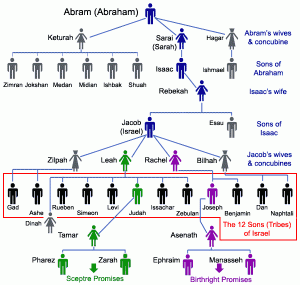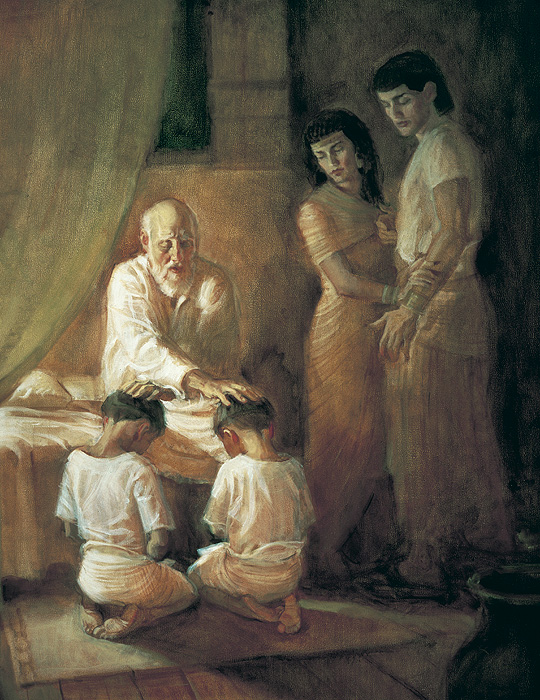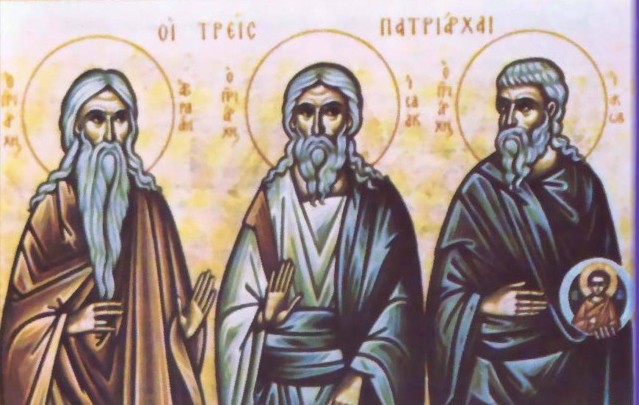Question
Gramps,
What is a Jew? It can be by lineage or conversion. This is concerns lineage. Some consider all Israelites to be Jews. I’m an Israelite but not a Jew. The Church defines those of the Tribe of Judah but if a person hasn’t had a patriarchal blessing how would they know if they are of Judah? Nephi who is of Manasseh calls himself a Jew. Paul who is from Benjamin calls himself a Jew. Joseph Smith is a descendant of King David but is not considered a Jew.
Shasta
Answer
Shasta,
It certainly is rather confusing for virtually everyone in this day and age to consider the definition of the word “Jew.” I’m afraid I cannot “clarify” it for you because the usage today is so murky and informal that it is not a very specific term anymore. But I’ll try to give you a bit of history to help figure it out.
The word was originally an abbreviation of the Kingdom of Judah. While the kingdom was largely made up of those from the tribe of Judah, all of the tribes had some representation in that kingdom. So, regardless of which tribe you were from, if you lived in that kingdom, you were considered a “Jew.”
On the other hand, those in the Northern Kingdom were largely from the tribe of Ephraim. But all of the tribes of Israel had some representation in that kingdom as well.
After the scattering of Israel, most of the people who returned to Israel were from the tribe of Judah. They maintained their heritage and their faith. But there were some members of other tribes as well. When the Israelites gathered again in Israel under the Persian Empire, those of Judah were the vast majority of the population.
The remaining tribes really couldn’t “gather” because their numbers were so scarce. As a result, all of the Israelites were gathered under the umbrella of the tribe of Judah. So, again, all Israelites who identified as such, came to be called “Jews.” So, for a period and given the right context, to be a Jew or an Israelite was synonymous.
Nephi refers to the “Jews” (as far as our English translation shows) as the people of the Southern Kingdom (Kingdom of Judah) because that was the meaning that Nephi would have known. The BoM mentions that he lived near Jerusalem.
…My father having dwelt at Jerusalem in all his days… — 1 Ne 1:4
While he mentioned his personal lineage (as he read from his family records in the Brass Plates) he called himself a Jew because he was from the Southern Kingdom. Truthfully, we don’t really know what word he actually used. But whatever word it was, Joseph translated that word as “Jews.” The same line of reasoning can be applied to Paul because by his century, all known Israelites were considered Jews.
Regardless of genetics, the “people” known as Jews had a common socialization, group identity, and religion. So, as a people, they didn’t make much of being from any particular tribe. It was simply a group identity.
As for Joseph Smith, I’m not familiar with any official reference that states that Joseph was descended from King David. But the common wisdom is that
- All the House of Israel was scattered all over the earth (known as “the diaspora”).
- Pretty much everyone shares some of the genetics from all the tribes of Israel through the diaspora.
- Over many centuries of marriage etc., almost everyone is related to everyone else. But that doesn’t mean everyone is a Jew.
Joseph Smith was never a practicing Jew. He did not live the Law of Moses. He didn’t identify as such. He was raised as a Christian. Regardless of his genetics (specifically, what tiny % of DNA he shared with King David) he simply wasn’t considered a Jew by all the other categorizations that are used to call a person a Jew.
Gramps







